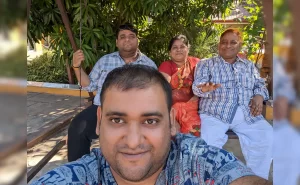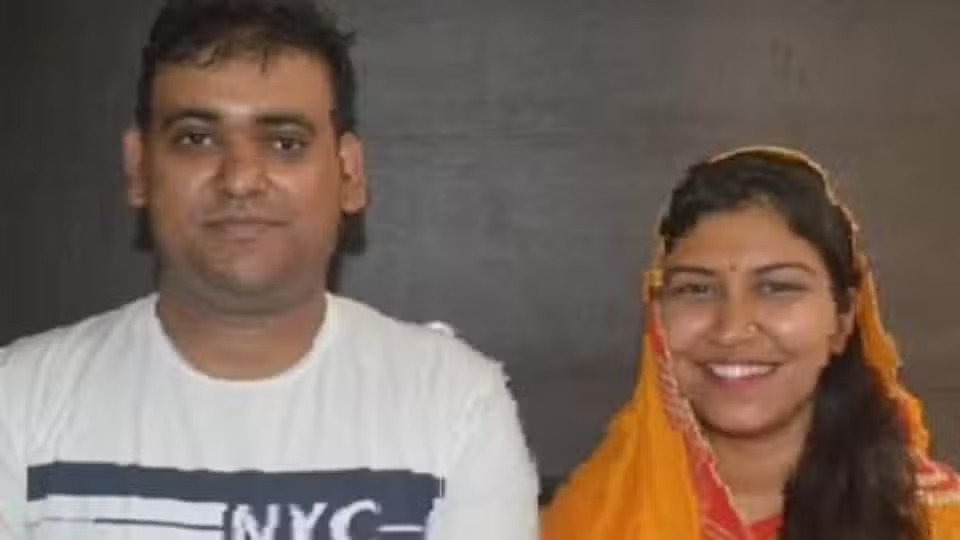16 December 2024: Life is a journey filled with dreams, aspirations, and relationships. But sometimes, it takes unexpected turns, leaving behind a trail of heartbreak and unanswered questions. One such tragic story is that of Atul Subhash, a 34-year-old AI engineer from Bengaluru, whose life ended in despair. His tale is not just about his untimely death but also about a father’s relentless love, a broken marriage, and the devastating impact of strained relationships.
Who Was Atul Subhash?

Atul Subhash was a brilliant AI engineer based in Bengaluru, known for his intelligence and dedication to work. But behind his professional success lay a man battling emotional turmoil. His life took a dark turn when his marriage to Nikita Singhania started to crumble soon after the birth of their son. What followed was a series of events that led to his tragic demise on December 9, when he was found hanging in his home in Munnekolala, Bengaluru.
Also read: The mystery behind Atul Shubhash death
The Joy That Turned Into Pain
Atul’s life seemed complete when he became a father. The birth of his son should have been a joyous occasion, but it marked the beginning of his struggles. Shortly after the baby’s arrival, conflicts arose between Atul and his wife, Nikita. These disputes escalated to the point where Nikita left for Jaunpur with their child. This separation deprived Atul of the chance to watch his son grow up, reducing his role in his son’s life to that of a distant father.

Atul’s father, Pawan Modi, revealed that Atul longed to see his son but was denied the opportunity. Even on his son’s birthday, February 20, Atul showed up at court with gifts, hoping for a brief reunion. He pleaded with the judge to allow him to see his child, but his request was denied, leaving him heartbroken.

|
The Strain of Broken Relationships
According to Pawan Modi, Atul’s in-laws treated him like an ATM machine, exploiting his earnings for their comfort. They allegedly persuaded Atul to buy a larger house in Bengaluru, claiming their business in Jaunpur was failing and they needed to move in with him. When Atul consulted his father, Pawan advised against it, urging Atul to stay grounded and avoid unnecessary expenses. Despite his attempts to protect himself from financial and emotional exploitation, Atul found himself ensnared in a web of demands and expectations.
The Final Days: A Cry for Help
The emotional toll of these strained relationships became too much for Atul. On December 9, 2024, his body was discovered at his home, and a suicide note revealed the depths of his despair. Atul accused his estranged wife and her family of harassment, false accusations, and pushing him to the brink. He also left a video detailing the emotional and mental torture he endured.
This revelation shook those who knew Atul. He was not just a victim of a broken marriage but also of a system that often fails to address the emotional struggles men face in such situations. His story serves as a grim reminder of how unresolved conflicts and lack of support can have devastating consequences.
A Father’s Fight for Justice
Atul’s father, Pawan Modi, is now on a mission to seek justice for his son and gain custody of his grandson. He vows to fight at every level, even planning to approach the President of India for help. He believes that his grandson deserves to grow up in a loving environment, free from the conflicts that plagued Atul’s life. Pawan’s determination highlights the enduring bond between a parent and their child, even in the face of overwhelming grief.
Lessons to Learn from Atul’s Story
Atul Subhash’s tragic story sheds light on several important issues:
- The Importance of Mental Health:
Atul’s story underscores the need to prioritize mental well-being. Emotional struggles often go unnoticed, especially among men, who may feel societal pressure to appear strong and unaffected. This case highlights the importance of seeking help and addressing mental health issues without stigma. - The Role of Family Support:
A strong support system can make a world of difference. While Atul’s father tried his best to guide and protect him, the lack of a supportive environment in his personal life led to his downfall. Families should strive to foster understanding and empathy, especially during times of conflict. - Legal and Social Challenges in Marital Disputes:
Atul’s plea to see his son and the alleged exploitation by his in-laws point to systemic issues in addressing marital conflicts. The legal system must ensure fairness and prioritize the well-being of children caught in such disputes. - The Need for Awareness About False Allegations:
Atul’s accusations against his estranged wife and her family raise concerns about the misuse of legal provisions. It’s crucial to strike a balance that protects genuine victims while preventing false allegations.
How Can We Prevent Such Tragedies?
Atul’s case is not an isolated incident. To prevent similar tragedies, we need to take proactive steps:
- Encourage Open Communication: Families should create a safe space for individuals to share their feelings without fear of judgment.
- Seek Professional Help: Counseling and therapy can provide much-needed support during times of distress.
- Promote Legal Reforms: The legal system must be equipped to handle marital disputes sensitively, ensuring justice for all parties involved.
- Raise Awareness About Mental Health: Schools, workplaces, and communities should prioritize mental health education and resources.
A Tragic End, A Wake-Up Call
The story of Atul Subhash is a sobering reminder of the fragile nature of human emotions and relationships. It’s a call to action for families, communities, and policymakers to address the underlying issues that lead to such heartbreak.
As we reflect on Atul’s life, let us remember the importance of compassion, understanding, and support. Let his story inspire us to be more attentive to the struggles of those around us, so that no one else feels the need to take such a tragic step.
Atul Subhash’s life was full of promise, but it was cut short by the weight of emotional and societal pressures. His story deserves to be told, not just to honor his memory but also to spark meaningful conversations about mental health, family dynamics, and justice.
Let us strive to build a world where stories like Atul’s become a thing of the past—a world where every individual feels heard, valued, and supported.

